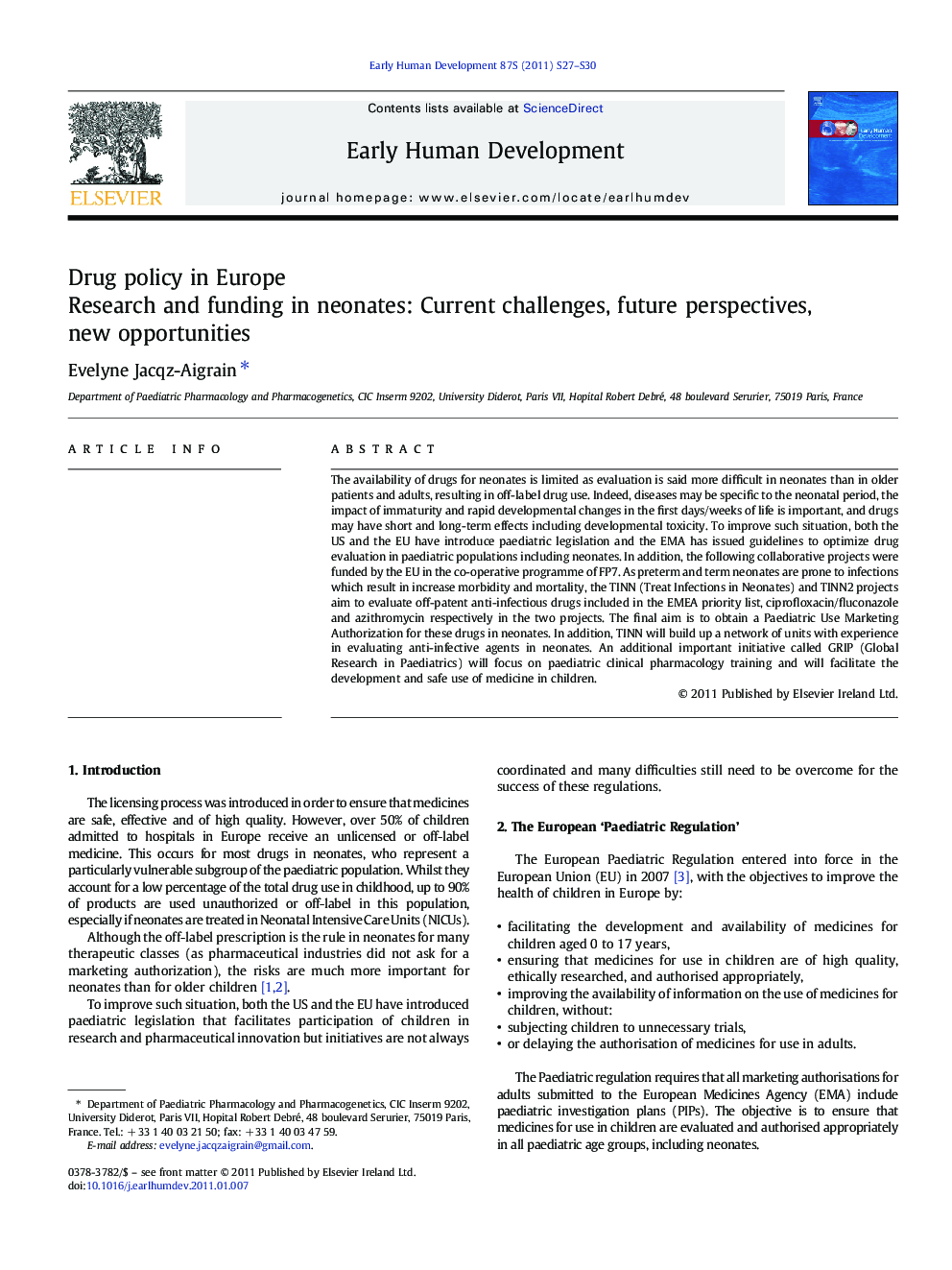| Article ID | Journal | Published Year | Pages | File Type |
|---|---|---|---|---|
| 3917456 | Early Human Development | 2011 | 4 Pages |
The availability of drugs for neonates is limited as evaluation is said more difficult in neonates than in older patients and adults, resulting in off-label drug use. Indeed, diseases may be specific to the neonatal period, the impact of immaturity and rapid developmental changes in the first days/weeks of life is important, and drugs may have short and long-term effects including developmental toxicity. To improve such situation, both the US and the EU have introduce paediatric legislation and the EMA has issued guidelines to optimize drug evaluation in paediatric populations including neonates. In addition, the following collaborative projects were funded by the EU in the co-operative programme of FP7. As preterm and term neonates are prone to infections which result in increase morbidity and mortality, the TINN (Treat Infections in Neonates) and TINN2 projects aim to evaluate off-patent anti-infectious drugs included in the EMEA priority list, ciprofloxacin/fluconazole and azithromycin respectively in the two projects. The final aim is to obtain a Paediatric Use Marketing Authorization for these drugs in neonates. In addition, TINN will build up a network of units with experience in evaluating anti-infective agents in neonates. An additional important initiative called GRIP (Global Research in Paediatrics) will focus on paediatric clinical pharmacology training and will facilitate the development and safe use of medicine in children.
